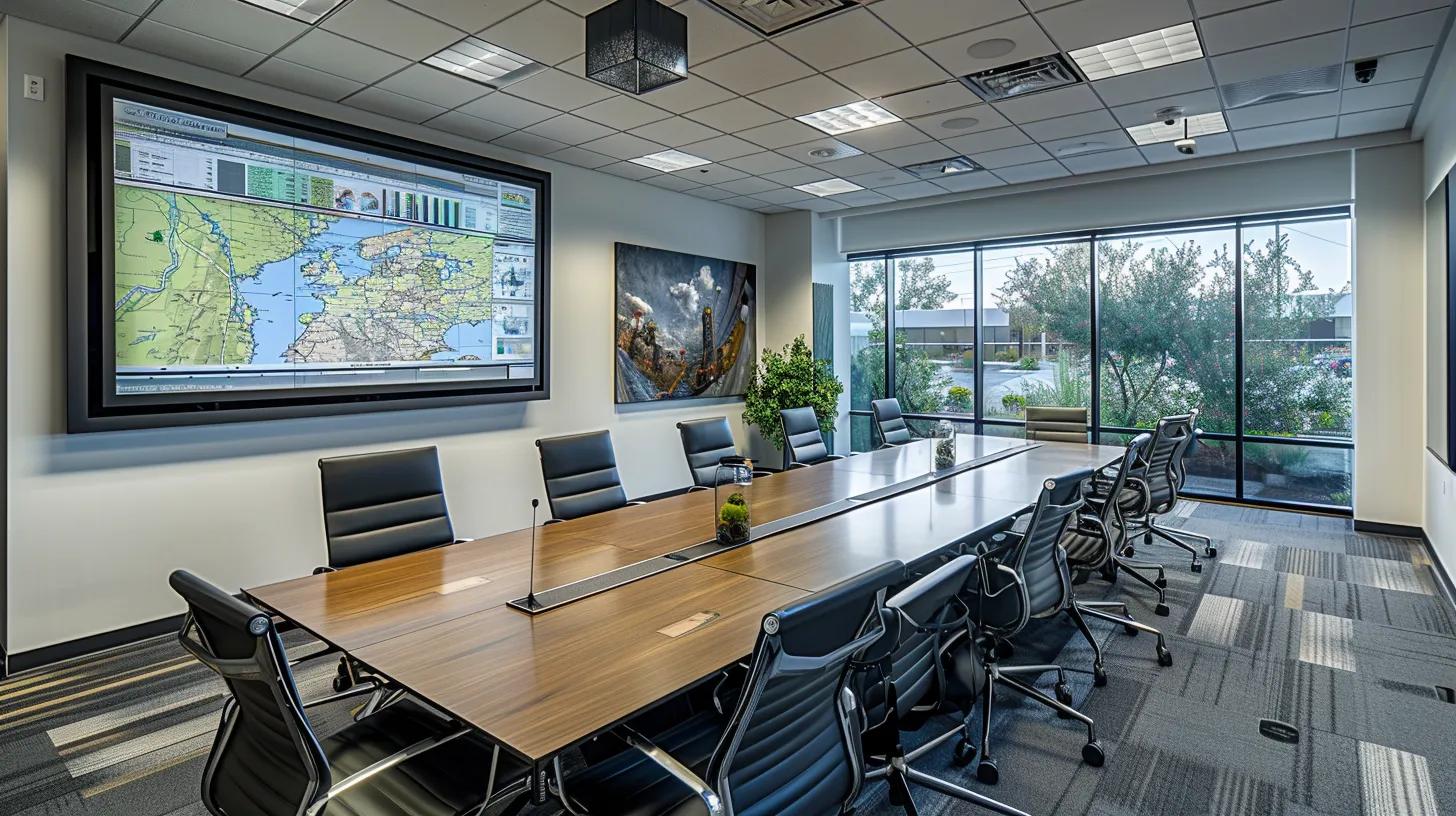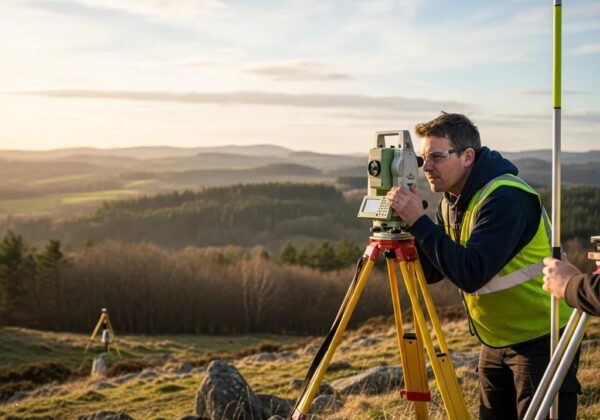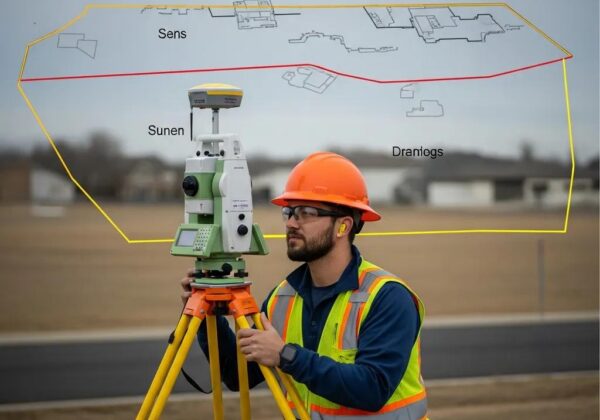Understanding Commercial Land Survey Fees Breakdown
Commercial land surveying is a critical step in real estate investment and construction, providing precise measurements and legally-recognized property boundaries. Determining the fees for these services, including the land survey cost, can be complex as they depend on multiple factors unique to each project. This article breaks down commercial land survey fees by outlining core cost components, influencing factors, survey types, and cost management strategies.
Key Insights into Commercial Land Survey Fee Structures
- Commercial land survey fees include charges for fieldwork, office processing, specialized equipment, project management, and site mobilization.
- Survey pricing is affected by property size, terrain complexity, and geographic location.
- Different survey types—ALTA/NSPS, boundary, topographic, construction staking, and as-built—have unique fee structures.
- Clear proposals and comprehensive documentation help optimize survey expenses.
- Additional costs may arise from boundary disputes or utility marking, so communication with the surveyor is essential.
Core Components of Commercial Land Survey Fees

Survey fees are generally based on several key components that ensure the accuracy and reliability of the data.
Identifying Fieldwork Charges in Your Survey Cost
Fieldwork charges cover the time surveyors spend measuring on-site, including labor, equipment transportation, and handling site-specific hazards. These measurements are crucial for establishing precise property boundaries and vary with project complexity and accessibility.
Calculating Office Processing and Mapping Expenses
After on-site work, survey data must be processed, which includes drafting maps, compiling reports, and verifying measurements using advanced software. This technical work ensures deliverables meet legal and regulatory standards and adds to the overall fee.
Accounting for Specialized Equipment Use in Fee Structures
Projects may require high-tech tools such as GPS systems, laser scanners, or UAVs (drones). The cost of using and maintaining these specialized devices is incorporated into the fee, enhancing both accuracy and efficiency during data collection.
Recognizing Project Administration and Management Costs
Project administration involves planning, scheduling, and managing both field and office operations. Experienced managers help coordinate resources and maintain timelines, ensuring quality control and a transparent fee structure.
Factoring in Mobilization and Site Accessibility Expenses
Mobilization fees cover travel and equipment transportation to sometimes remote or difficult-to-access locations. Rugged terrain, limited travel routes, and urban congestion can all increase these costs.
Key Factors Influencing Your Commercial Land Survey Fees
Several external factors can influence survey costs and must be considered during budgeting.
How Property Size and Acreage Affect Survey Pricing
Larger properties require more extensive fieldwork and data collection, leading to higher fees proportional to the total area and the time invested by the surveyor.
The Impact of Terrain Complexity and Vegetation on Costs
Irregular or challenging terrains such as uneven ground, dense vegetation, or urban settings require more intensive surveying techniques and specialized equipment, all of which can drive up costs.
Availability and Quality of Existing Records and Their Role in Fees
Accurate property records and previous survey data help streamline fieldwork by reducing duplication, while outdated or incomplete records necessitate additional efforts to confirm boundaries.
Specific Client Requirements and Their Influence on Overall Fees
Custom client needs, such as expedited schedules, detailed report formats, or extra deliverables, may lead to additional charges beyond standard survey fees.
Geographic Location and Its Bearing on Commercial Survey Rates
Local market conditions, including labor rates and travel expenses, vary by region and directly affect survey pricing, making geographic location a key determinant in overall cost.
Deciphering Different Commercial Survey Types and Associated Fees

Different survey types offer varied methodologies and deliverables, each with its own fee structure.
ALTA/NSPS Land Title Survey Fee Considerations
These surveys follow strict standards for land title insurance, requiring detailed documentation of boundaries, easements, and encroachments. The fees reflect the high level of verification needed.
Boundary Survey Costs for Commercial Properties
Boundary surveys focus on defining property lines and resolving disputes or confirming legal limits. Fees depend on the clarity of existing boundary markers and the quality of historical records.
Topographic Survey Pricing Structures
Topographic surveys capture the elevation, contours, and natural features of a property. Pricing depends on terrain complexity and the level of detail required for construction and engineering assessments.
Construction Staking Fee Arrangements
Construction staking involves marking precise locations for structures before development begins. Fees are based on the number of markers, design density, and the use of advanced GPS technology for accuracy.
As-Built Survey Fee Components for Commercial Projects
As-built surveys document the actual built condition post-construction. Costs include reviewing plans, on-site verification, and updating documentation crucial for quality assurance and future maintenance.
The Process for Obtaining and Evaluating Commercial Land Survey Fee Quotes
Securing competitive and accurate fee quotes is essential to managing survey expenses.
Preparing a Comprehensive Request for Proposal for Survey Services
A detailed RFP that includes the project scope, specific requirements, timeline, and deliverables helps surveyors provide precise fee estimates and reduce mid-project discrepancies.
Locating and Vetting Qualified Commercial Land Surveyors
Clients should research surveyors by reviewing their credentials, past project experience, and client testimonials to ensure accuracy and reliability.
What to Look for in a Detailed Commercial Land Survey Fee Proposal
A comprehensive fee proposal should list all costs such as fieldwork, office processing, specialized equipment, and any extra services. Transparency helps identify hidden or additional charges.
Comparing Multiple Survey Quotes With an Informed Perspective
When comparing quotes, consider the surveyor’s experience, scope of work, and potential additional fees to balance cost against quality.
Questions to Pose to Surveyors Regarding Their Fee Breakdown
It is important to ask for details on equipment use, data processing, and contingency measures to avoid unexpected charges.
Uncovering Potential Additional Costs in Commercial Land Survey Fees

Additional charges may arise during the surveying process that clients should be prepared for.
Charges for Resolving Boundary Discrepancies or Disputes
Disputes or unclear property boundaries may require further analysis and legal evaluations, adding to the overall cost.
Fees Associated With Utility Location and Marking Services
Surveys often include locating and marking underground utilities like water, gas, or electrical lines, which requires additional time and equipment.
Costs for Additional Deliverables or Specific Report Formats
Customized deliverables or unique report formats may incur extra fees beyond the standard survey report.
Expenses Related to Expedited Service Requests
For projects with tight deadlines, expedited services can be arranged at a premium due to the need for additional resources.
Understanding Charges for Re-Staking or Monument Replacement
If survey markers are missing or need replacement, the additional visit and re-staking efforts will increase the survey fee.
Strategies for Managing and Optimizing Commercial Land Survey Fees
Effective cost management involves clear communication and careful planning to keep survey fees under control.
Benefits of Clear Project Scope Definition for Cost Control
A well-defined project scope prevents scope creep and helps surveyors provide a fixed estimate, reducing unexpected costs.
Providing Accessible Site Conditions to Reduce Field Time
Improving site access by clearing obstacles or sharing existing data can reduce survey time and associated labor expenses.
Supplying All Available Documentation Upfront
Providing existing maps and records early on enables surveyors to validate boundaries more efficiently, cutting down on redundant work.
Staging Survey Work for Large or Phased Projects
Phasing survey work allows for incremental cost control, making it easier for clients to monitor expenses and adjust plans as needed.
Open Communication With Your Surveyor Throughout the Project
Maintaining regular communication ensures that any changes or issues are addressed quickly, potentially uncovering savings and keeping costs optimized.
Frequently Asked Questions
Q: What factors determine the cost of a commercial land survey? A: Costs depend on fieldwork time, office processing, specialized equipment, and geographic conditions, alongside project-specific needs.
Q: How does property size impact survey fees? A: Larger properties require more measurements and data processing, which increases fees relative to acreage and complexity.
Q: Can additional costs arise during a survey? A: Yes, extra charges may occur for resolving boundary disputes, utility markings, expedited services, or re-staking markers.
Q: How should clients compare surveyorproposals? A: Compare detailed fee breakdowns, surveyor credentials, and past project experience to balance cost and quality effectively.
Q: Are expedited surveyingservices more expensive? A: Yes, services with faster turnaround times involve additional resources and come with a higher premium.
Final Thoughts
Commercial land survey fees are influenced by multiple factors that ensure data accuracy and reliability. Understanding the core components, influencing factors, and potential extra charges helps clients prepare and manage costs effectively. Clear communication, detailed documentation, and strategic planning are essential to optimizing expenses and ensuring successful project outcomes in real estate investment and construction.



